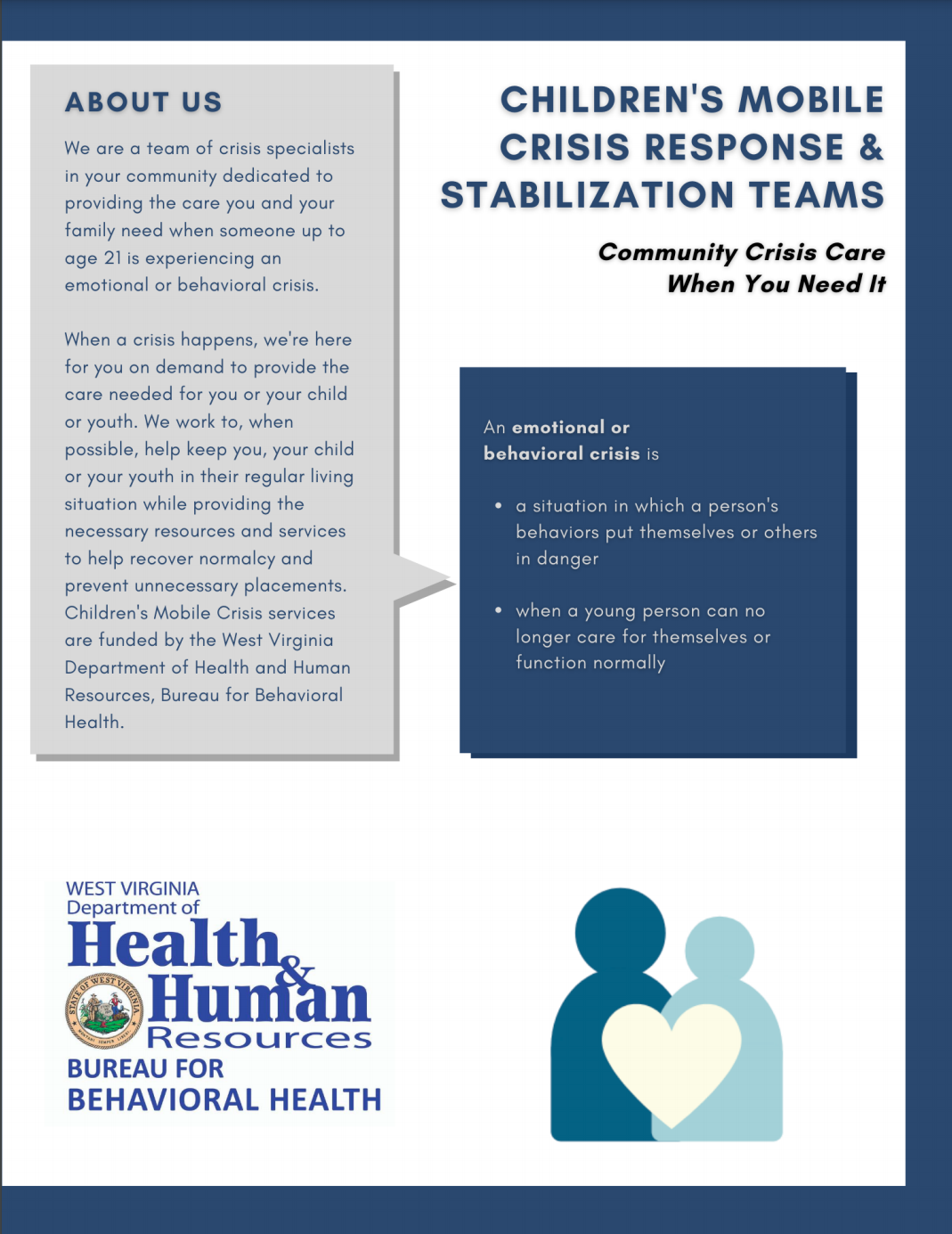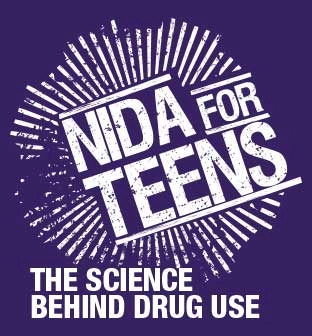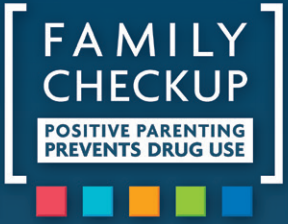Teens & Families
Parents and caregivers - you can influence whether your child uses alcohol or drugs. It is crucial that you start talking with your children about alcohol and drugs well before the teen years. The earlier a person starts using drugs or alcohol, the more likely they are to develop substance use disorders.
Although you may not think so, parents have a significant influence on teen's decisions.
Ways to help your child make good decisions about drugs and alcohol:
- Establish and maintain good communication with your child.
- Get involved in your child's life.
- Make clear rules and enforce them consistently.
- Be a positive role model.
- Monitor your child's activities.
- Teach your child to choose friends wisely.
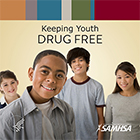 Source: Keeping Youth Drug Free. HHS Publication No. (SMA) 17-3772. Rockville, MD: Center for Substance Abuse Prevention, Substance Abuse and Mental Health Services Administration, 2017.
https://store.samhsa.gov/product/Keeping-Youth-Drug-Free/SMA17-3772
Source: Keeping Youth Drug Free. HHS Publication No. (SMA) 17-3772. Rockville, MD: Center for Substance Abuse Prevention, Substance Abuse and Mental Health Services Administration, 2017.
https://store.samhsa.gov/product/Keeping-Youth-Drug-Free/SMA17-3772
Check out these downloadable parent resources from Partnership for Drug-Free Kids:
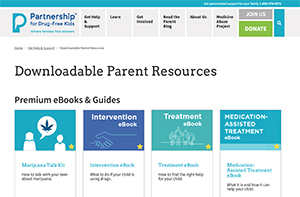
https://drugfree.org/resources/
NIDA Director, Dr. Nora Volkow highlights the development of the adolescent brain and encourages parents to have the conversation with their teens about substance use and its effects on health.
Safety Advice for Patients and Family Members
If you suspect an overdose:
CALL 911 IMMEDIATELY. An overdose requires immediate medical attention.
Signs of an OVERDOSE (a life-threatening emergency) include:
- Face is extremely pale and/or clammy to the touch.
- Body is limp.
- Fingernails or lips have a blue or purple cast.
- Person is vomiting or making gurgling noises.
- Person cannot be awakened from sleep or is unable to speak.
- Breathing is very slow or stopped.
- Heartbeat is very slow or stopped.
Signs of OVERMEDICATION (which may progress to overdose) include:
- Unusual sleepiness or drowsiness.
- Mental confusion, slurred speech, or intoxicated behavior.
- Slow or shallow breathing.
- Extremely small “pinpoint” pupils.
- Slow heartbeat or low blood pressure.
- Difficulty in being awakened from sleep.
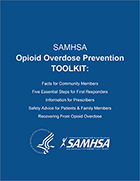 Source: Substance Abuse and Mental Health Services Administration. SAMHSA Opioid Overdose Prevention Toolkit. HHS Publication No. (SMA) 16-4742. Rockville, MD: Substance Abuse and Mental Health Services Administration, 2016.
Source: Substance Abuse and Mental Health Services Administration. SAMHSA Opioid Overdose Prevention Toolkit. HHS Publication No. (SMA) 16-4742. Rockville, MD: Substance Abuse and Mental Health Services Administration, 2016.
Grandparents
"Grandfamilies," or kinship families, are those in which children live with and are being raised by grandparents, relatives or other adult extended family members. Grandparents play an important role in providing safe and stable homes to children who cannot remain in the care of their parents. Learn more about the important role played and challenges faced by grandparents raising children.
WV Relatives as Parents Program (RAPP) offers information and resources including: A Guide to Navigating Resources and Benefits for Relative/Kinship Caregivers in West Virginia.

Healthy Grandfamilies is a free initiative led by West Virginia State University to provide information and resources to grandparents who are raising one or more grandchildren. The program is funded by the United States Department of Agriculture’s National Institute of Food and Agriculture. Designed as a series of nine discussion sessions and follow-up services, Healthy Grandfamilies is taught by an education professional with more than 40 years of experience who also happens to be the product of a grandfamily.
Learn more: http://healthygrandfamilies.com
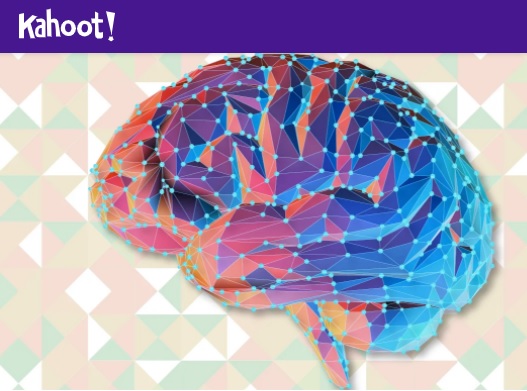
Check out NIDA Kahoot! to test your knowledge on how drugs and alcohol affect young people’s brains and bodies.
WV Students Against Destructive Decisions
Encourage your teen to participate in a local WV Students Against Destructive Decisions (WVSADD) Chapter. SADD promotes positive mental health, leadership development and good decision-making. West Virginia leads the nation in SADD chapter development with nearly 300 chapters established statewide, including school based, local community based, and college based chapters.

Download the “Talk. They Hear You” App
The app features an interactive simulation that helps you learn the do's and don'ts of talking to kids about underage drinking. Using avatars, you will:
- Practice bringing up the topic of alcohol
- Learn the questions to ask
- Get ideas for keeping the conversation going
https://www.samhsa.gov/underage-drinking/mobile-application?WT.ac=OSAS_20150827_TTHY_LandingPage
Partnership for Drug-Free Kids: Help & Hope By Text
If your son or daughter is struggling with heroin or other opioids - sign up to get support and information by text.

The West Virginia Collegiate Initiative to Address High Risk Alcohol Use is an organization that proactively addresses alcohol, other drug and associated violence issues at the college level.
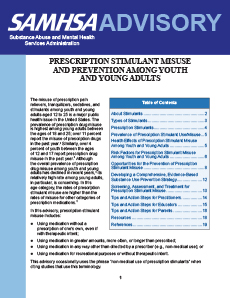
Prescription Stimulant Misuse and Prevention Among Youth and Young Adults
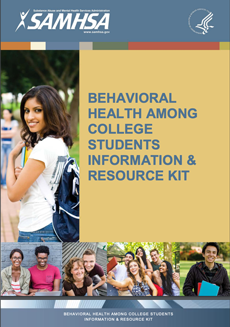
SAMHSA Behavioral Health Among College Students Information & Resource Kit
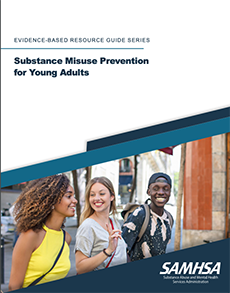
Publication No. PEP19-PL-Guide-1 Rockville, MD: National Mental Health and Substance Use Policy Laboratory. Substance Abuse and Mental Health Services Administration, 2019.
Click to download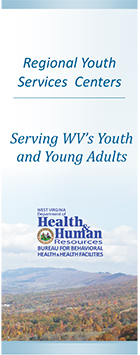
WV Regional Youth Services Centers
